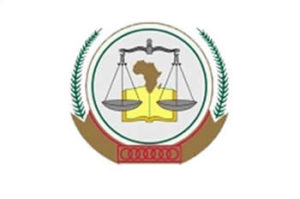Lady Justices dominate eleven-member African Court panel
 Lady Justices dominate the eleven-member panel of the African Court on Human and Peoples’ Rights the continental court established by African countries to ensure the protection of human and peoples’ rights in Africa.
Lady Justices dominate the eleven-member panel of the African Court on Human and Peoples’ Rights the continental court established by African countries to ensure the protection of human and peoples’ rights in Africa.
It is currently headed by Lady Justice Imani Daud Aboud who is a national of Tanzania; Lady Justice Tujilane Rose Chizumila who is a national of Malawi; and Lady Justice Ntyam Ondo Mengue from Cameroon.
The others are; Lady Justice Bensaoula Chafika from Algeria; Lady Justice Stella Isibhakhomen Anukam from Nigeria; and Lady Justice Mukamulisa Marie Thérèse from Rwanda.
African Court document made available to the Ghana News Agency in Tema also identified the male Justices as Justice Blaise Tchikaya from Congo; Justice Ben Kioko from Kenya; Justice Rafaâ Ben from Tunisia; Justice Dumisa Ntsebeza from South Africa; and Justice Sacko Modibo from Mali.
The African Court President, Lady Justice Aboud told the Ghana News Agency in an interview that the President of the Court resided and worked full time at the seat of the Court in Arusha, Tanzania, while the other 10 Judges worked on part-time basis.
A judge to the African Court is nominated by their respective States, elected in their individual capacities, from among African jurists of proven integrity and of recognized practical, judicial or academic competence and experience in the field of human rights.
The Judges are elected for a six-year term, renewable once.
The Court officially started its operations in Addis Ababa, Ethiopia in November 2006, in August 2007 it moved to its seat in Arusha, Tanzania.
Between 2006 and 2008, the African Court dealt principally with operational and administrative issues, including developing of the structure of the Court’s Registry, preparing its budget and drafting of its Interim Rules of Procedure.
In 2008, during the African Court’s Ninth Ordinary Session, it adopted the Interim Rules of Court, pending consultation with the African Commission on Human and Peoples’ Rights, with a view to harmonizing their rules.
The harmonization process was completed in April 2010, and in June 2010, the Court adopted its Final Rules of Court. The African Court may receive cases filed by the African Commission of Human and Peoples’ Rights, State Parties to the Protocol or African Intergovernmental Organizations.
Non-Governmental Organizations with observer status with the African Commission and individuals can file cases directly at the Court as long as the State that they are suing has deposited the Article 34(6) declaration recognizing the jurisdiction of the Court to accept cases from individuals and NGOs.
During its 58th Ordinary Session, the African Court adopted new Rules which came into force on September 25, 2020.
Source: GNA
